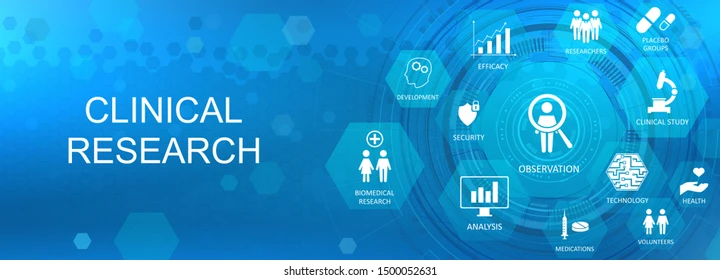Ph.D. in Clinical Research: Introduction, Admission, Registration, Eligibility, Duration, Fees, Syllabus 2024

Introduction
The journey to a Ph.D. in Clinical Research is an ambitious path that prepares individuals to lead, innovate, and significantly improve the medical and healthcare landscape. This program not only focuses on the development of rigorous research methodologies but also on the application of these methods to solve real-world clinical problems. This post will guide you through the essential elements of the Ph.D. program in Clinical Research including admissions, eligibility, program length, career prospects, curriculum details, internships, and financial support opportunities.
Admission Process:
- Application Submission: Aspirants must submit a formal application, complete with personal statements, academic records, and recommendations.
- Standardized Tests: Most programs require scores from exams such as the GRE or MCAT, depending on the focus of the program.
- Interviews: Top candidates are usually invited for interviews to discuss their research interests and career goals with faculty members.
- Research Proposal: Some programs may require a preliminary research proposal to assess the candidate’s research thinking and alignment with faculty expertise.
- Background Check: Due to the clinical nature of the work, a background check is often required.
Eligibility Criteria:
- Educational Background: A master’s degree in a related field (e.g., life sciences, public health) is typically required.
- Research Experience: Demonstrable experience in research, whether through employment, internships, or academic projects.
- Academic Performance: High academic standing, usually quantified as a minimum GPA of 3.0 or equivalent.
- Professional Recommendations: Strong letters of recommendation from academic or professional contacts.
- Scientific Curiosity: A keen interest in clinical research methodologies and a desire to contribute to medical advancements.
- English Proficiency: Fluency in English, with TOEFL or IELTS scores required for non-native speakers.
Completion Time:
A Ph.D. in Clinical Research typically takes 4-6 years to complete, depending on the nature of the research project and the student’s pace.
Career Opportunities:
- Academic Researcher: Contribute to scientific knowledge as a faculty member at a university.
- Clinical Research Coordinator: Oversee clinical trials and ensure they adhere to regulatory and ethical standards.
- Pharmaceutical Research Scientist: Develop new drugs and therapies in the pharmaceutical industry.
- Biostatistician: Specialize in designing and analyzing the results of clinical studies.
- Regulatory Affairs Specialist: Ensure clinical products comply with national and international regulations.
Syllabus:
- Advanced Biostatistics: In-depth analysis techniques for clinical data.
- Epidemiology: The study of disease distribution and determinants in populations.
- Clinical Trial Management: From design to execution of clinical trials.
- Regulatory Compliance: Understanding the ethical and legal frameworks governing clinical research.
- Data Management: Techniques for managing large datasets typical in clinical studies.
Internship Opportunities:
- Pharmaceutical Companies: Gain hands-on experience in drug development and trials.
- Hospital Research Units: Work directly on active clinical research projects in a hospital setting.
- Government Health Agencies: Participate in large-scale public health research initiatives.
- Biotechnology Firms: Contribute to research in a rapidly growing and innovative field.
- Non-Profit Organizations: Engage with research that focuses on public health issues and policy advocacy.
Scholarships and Grants:
- University Fellowships: Many universities offer fellowships that cover tuition and provide a stipend.
- Government Grants: Opportunities such as the NIH-funded research grants.
- Private Foundations: Grants from organizations interested in specific diseases or treatments.
- Corporate Sponsorships: Companies invest in students who conduct research beneficial to their industry.
- International Scholarships: For non-domestic students, various scholarships are available depending on their home country and study destination.
FAQs:
What is the difference between a Ph.D. in Clinical Research and a medical degree?
A Ph.D. focuses on developing new knowledge and research methodologies, whereas a medical degree focuses on clinical practice and patient care.
Can I work while pursuing my Ph.D.?
Many programs are full-time and demanding, but part-time options may be available, especially if aligned with your research.
What kind of support can I expect from my institution during my Ph.D.?
Most institutions provide mentorship, access to research facilities, and networking opportunities.
How important is my research proposal in the application process?
It is crucial as it demonstrates your ability to conceive and plan a research study.
